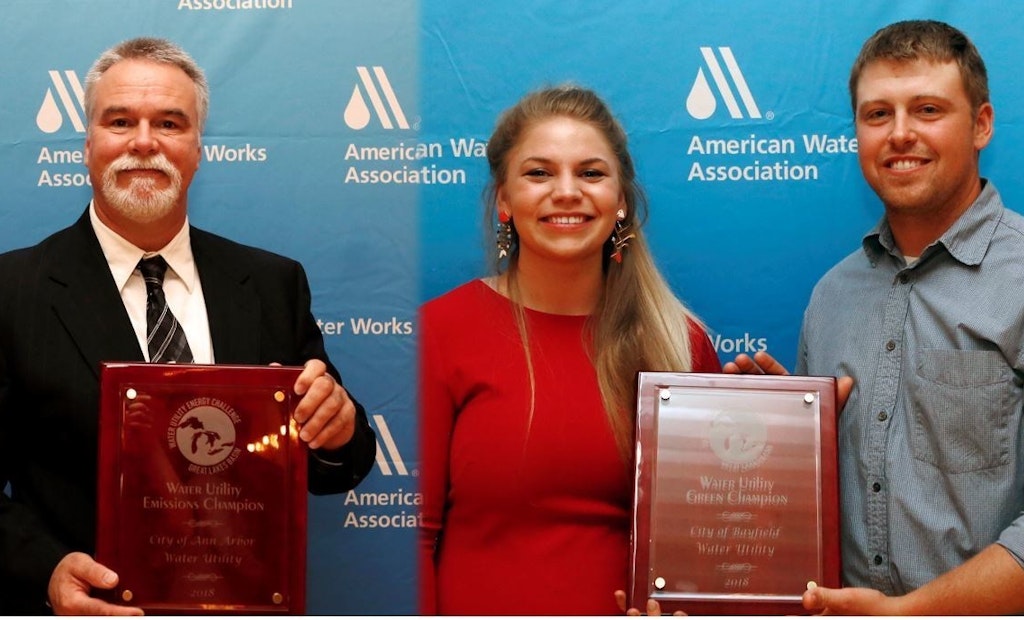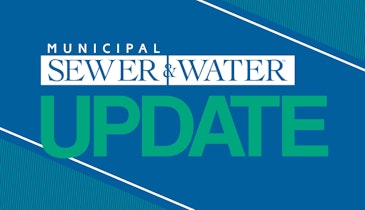
Michael Culpepper from the City of Ann Arbor accepts the WUEC Emissions Champion Award and a $20,000 check (left). Sarah Mather and Josh Pearson from the City of Bayfield, Wisconsin, accept the WUEC Green Champion Award and a $10,000 check.
The Great Lakes Protection Fund (GLPF) and American Water Works Association (AWWA) have announced the winners of the inaugural Water Utility Energy Challenge (WUEC), an innovative program that engages water operators in a competition to reduce emissions from energy generation.
The competition — which focused on the Great Lakes Basin — was aimed at connecting the utilities with new software that reduces mercury and other emissions while reducing the utility’s O&M costs.
“We’re really impressed with the breadth of the WUEC winners,” says AWWA CEO David LaFrance. “They represent a wide range of communities, from small towns to large urban areas, and epitomize the next generation of cutting-edge water utilities. The winners proved that all utilities can use the cleanest energy to deliver safe drinking water to their customers and significantly reduce the associated emissions of mercury, lead, carbon and nitric oxide. It is the sort of thing that makes a big difference.”
Winning a $20,000 prize and being named Water Utility Emissions Champion was the city of Ann Arbor, Michigan. The Water Utility Green Champion was the city of Bayfield, Wisconsin, which was awarded $10,000.
The Best Pilot Project award went to Great Lakes Water Authority of Detroit, Michigan. Winner of the Technical Leader award was the city of Highland Park, Illinois. Onondaga County Water Authority of North Syracuse, New York, won the Carbon Reduction Leader award.
David Rankin, vice-president of programs for GLPF, says that by using innovative technologies to protect the Great Lakes, the winners are a testament to the creativity needed to run a successful water utility today. “We’re pleased with the emission reductions from this small pilot program. The carbon reduction alone was 1.5 million pounds and the overall emissions reduction was equivalent to approximately 2,500 houses being removed from the system. With this ambitious start, when they scale up, these water utilities could easily mitigate more than five times that amount.”
For more information about the challenge, visit www.AWWA.org/competition. Watch the video below to learn more about water utilities’ energy consumption in the Great Lakes region.
About the Water Utility Energy Challenge
The WUEC is a technology competition focused on water utilities in the Great Lakes Basin. Offering two top cash prizes of $20,000 and $10,000, the WUEC is supported by GLPF. It is a collaborative effort of the AWWA, CDM Smith, E2I, Great Lakes and St. Lawrence Cities Initiative, Growth Capital Network and Wayne State University.





